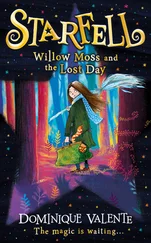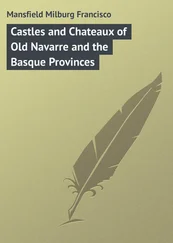Ursula Le Guin - Old Music and the Slave Women
Здесь есть возможность читать онлайн «Ursula Le Guin - Old Music and the Slave Women» весь текст электронной книги совершенно бесплатно (целиком полную версию без сокращений). В некоторых случаях можно слушать аудио, скачать через торрент в формате fb2 и присутствует краткое содержание. Жанр: Фантастика и фэнтези, на английском языке. Описание произведения, (предисловие) а так же отзывы посетителей доступны на портале библиотеки ЛибКат.
- Название:Old Music and the Slave Women
- Автор:
- Жанр:
- Год:неизвестен
- ISBN:нет данных
- Рейтинг книги:4 / 5. Голосов: 1
-
Избранное:Добавить в избранное
- Отзывы:
-
Ваша оценка:
- 80
- 1
- 2
- 3
- 4
- 5
Old Music and the Slave Women: краткое содержание, описание и аннотация
Предлагаем к чтению аннотацию, описание, краткое содержание или предисловие (зависит от того, что написал сам автор книги «Old Music and the Slave Women»). Если вы не нашли необходимую информацию о книге — напишите в комментариях, мы постараемся отыскать её.
and after that imported to fb2 by soshial (21.05.2008) http://torrents.ru/forum/viewtopic.php?t=463754
Old Music and the Slave Women — читать онлайн бесплатно полную книгу (весь текст) целиком
Ниже представлен текст книги, разбитый по страницам. Система сохранения места последней прочитанной страницы, позволяет с удобством читать онлайн бесплатно книгу «Old Music and the Slave Women», без необходимости каждый раз заново искать на чём Вы остановились. Поставьте закладку, и сможете в любой момент перейти на страницу, на которой закончили чтение.
Интервал:
Закладка:
Ursula K. Le Guin
Old Music and the Slave Women
The Chief Intelligence Officer of the Ekumenical Embassy to Werrel, a man who on his home world had the name Sohikelwenyanmurkeres Esdan, and who in Voe Deo was known by a nickname, Esdardon Aya or Old Music, was bored. It had taken a civil war and three years to bore him, but he had got to the point where he referred to himself in ansible reports to the Stabiles on Hain as the Embassy's chief stupidity officer.
He had been able, however, to retain a few clandestine links with friends in the Free City even after the Legitimate Government sealed the Embassy, allowing no one and no information to enter or leave it. In the third summer of the war, he came to the Ambassador with a request. Cut off from reliable communication with the Embassy, Liberation Command had asked him (how? asked the Ambassador; through one of the men who delivered groceries, he explained) if the Embassy would let one or two of its people slip across the lines and talk with them, be seen with them, offer proof that despite propaganda and disinformation, and though the Embassy was stuck in Jit City, its staff had not been co-opted into supporting the Legitimates, but remained neutral and ready to deal with rightful authority on either side.
"Jit City?" said the Ambassador. "Never mind. But how do you get there?"
"Always the problem with Utopia," Esdan said. "Well, I can pass with contact lenses, if nobody's looking closely. Crossing the Divide is the tricky bit."
Most of the great city was still physically there, the government buildings, factories and warehouses, the university, the tourist attractions: the Great Shrine of Tual, Theater Street, the Old Market with its interesting display rooms and lofty Hall of Auction, disused since the sale and rental of assets had been shifted to the electronic marketplace; the numberless streets, avenues, and boulevards, the dusty parks shaded by purple-flowered beya trees, the miles and miles of shops, sheds, mills, tracks, stations, apartment buildings, houses, compounds, the neighborhoods, the suburbs, and exurbs. Most of it still stood, most of its fifteen million people were still there, but its deep complexity was gone. Connections were broken. Interactions did not take place. A brain after a stroke.
The greatest break was a brutal one, an ax-blow right through the pons, a kilo-wide no-man's-land of blown-up buildings and blocked streets, wreckage and rubble. East of the Divide was Legitimate territory: downtown, government offices, embassies, banks, communications towers, the university, the great parks and wealthy neighborhoods, the roads out to the armory, barracks, airports, and spaceport. West of the Divide was Free City, Dustyville, Liberation territory: factories, union compounds, the rentspeople's quarters, the old gareot residential neighborhoods, endless miles of little streets petering out into the plains at last. Through both ran the great East-West highways, empty.
The Liberation people smuggled him out of the Embassy and almost across the Divide successfully. He and they had had a lot of practice in the old days getting runaway assets out to Yeowe and freedom. He found it interesting to be the one smuggled instead of one of the smugglers, finding it far more frightening yet less stressful, since he was not responsible, the package not the postman. But somewhere in the connection there had been a bad link.
They made it on foot into the Divide and partway through it and stopped at a little derelict truck sitting on its wheel rims under a gutted apartment house. A driver sat at the wheel behind the cracked, crazed windshield, and grinned at him. His guide gestured him into the back. The truck took off like a hunting cat, following a crazy route, zigzagging through the ruins. They were nearly across the Divide, jolting across a rubbled stretch which might have been a street or a marketplace, when the truck veered, stopped, there were shouts, shots, the van back was flung open and men plunged in at him. "Easy," he said, "go easy," for they were manhandling him, hauling him, twisting his arm behind his back. They yanked him out of the truck, pulled off his coat and slapped him down searching for weapons, frog-marched him to a car waiting beside the truck. He tried to see if his driver was dead but could not look around before they shoved him into the car.
It was an old government state-coach, dark red, wide, and long, made for parades, for carrying great estate owners to the Council and ambassadors from the spaceport. Its main section could be curtained to separate men from women passengers, and the driver's compartment was sealed off so the passengers wouldn't be breathing in what a slave breathed out.
One of the men had kept his arm twisted up his back until he shoved him headfirst into the car, and all he thought as he found himself sitting between two men and facing three others and the car starting up was, I'm getting too old for this.
He held still, letting his fear and pain subside, not ready yet to move even to rub his sharply hurting shoulder, not looking into faces nor too obviously at the streets. Two glances told him they were passing Rei Street, going east, out of the city. He realised then he had been hoping they were taking him back to the Embassy. What a fool.
They had the streets to themselves, except for the startled gaze of people on foot as they flashed by. Now they were on a wide boulevard, going very fast, still going east. Although he was in a very bad situation, he still found it absolutely exhilarating just to be out of the Embassy, out in the air, in the world, and moving, going fast.
Cautiously he raised his hand and massaged his shoulder. As cautiously, he glanced at the men beside him and facing him. All were dark-skinned, two blue-black. Two of the men facing him were young. Fresh, stolid faces. The third was a veot of the third rank, an oga. His face had the quiet inexpressiveness in which his caste was trained. Looking at him, Esdan caught his eye. Each looked away instantly.
Esdan liked veots. He saw them, soldiers as well as slaveholders, as part of the old Voe Deo, members of a doomed species. Businessmen and bureaucrats would survive and thrive in the Liberation and no doubt find soldiers to fight for them, but the military caste would not. Their code of loyalty, honor, and austerity was too like that of their slaves, with whom they shared the worship of Kamye, the Swordsman, the Bondsman. How long would that mysticism of suffering survive the Liberation? Veots were intransigent vestiges of an intolerable order. He trusted them, and had seldom been disappointed in his trust.
The oga was very black, very handsome, like Teyeo, a veot Esdan had particularly liked. He had left Werel long before the war, off to Terra and Hain with his wife, who would be a Mobile of the Ekumen one of these days. In a few centuries. Long after the war was over, long after Esdan was dead. Unless he chose to follow them, went back, went home.
Idle thoughts. During a revolution you don't choose. You're carried, a bubble in a cataract, a spark in a bonfire, an unarmed man in a car with seven armed men driving very fast down the broad, blank East Arterial Highway. . . . They were leaving the city. Heading for the East Provinces. The Legitimate Government of Voe Deo was now reduced to half the capital city and two provinces, in which seven out of eight people were what the eighth person, their owner, called assets.
The two men up in the front compartment were talking, though they couldn't be heard in the owner compartment. Now the bullet-headed man to Esdan's right asked a muttered question to the oga facing him, who nodded.
"Oga," Esdan said.
The veot's expressionless eyes met his.
"I need to piss."
Читать дальшеИнтервал:
Закладка:
Похожие книги на «Old Music and the Slave Women»
Представляем Вашему вниманию похожие книги на «Old Music and the Slave Women» списком для выбора. Мы отобрали схожую по названию и смыслу литературу в надежде предоставить читателям больше вариантов отыскать новые, интересные, ещё непрочитанные произведения.
Обсуждение, отзывы о книге «Old Music and the Slave Women» и просто собственные мнения читателей. Оставьте ваши комментарии, напишите, что Вы думаете о произведении, его смысле или главных героях. Укажите что конкретно понравилось, а что нет, и почему Вы так считаете.












